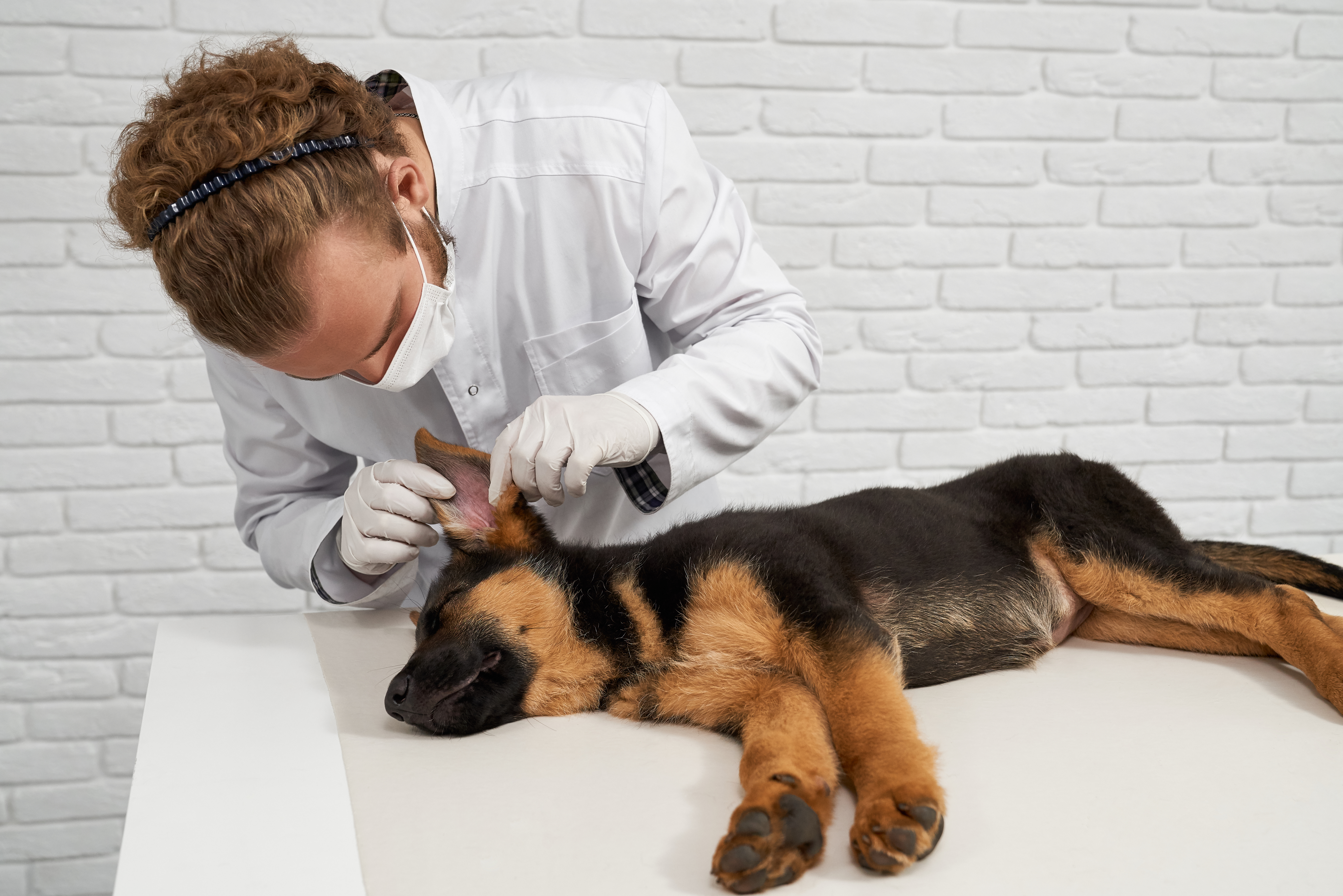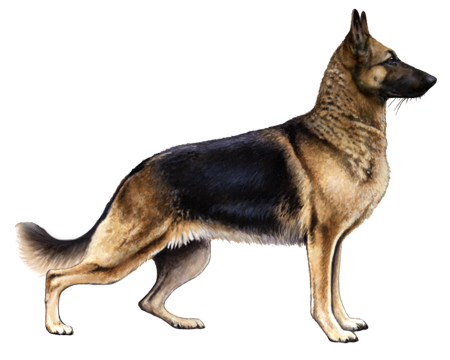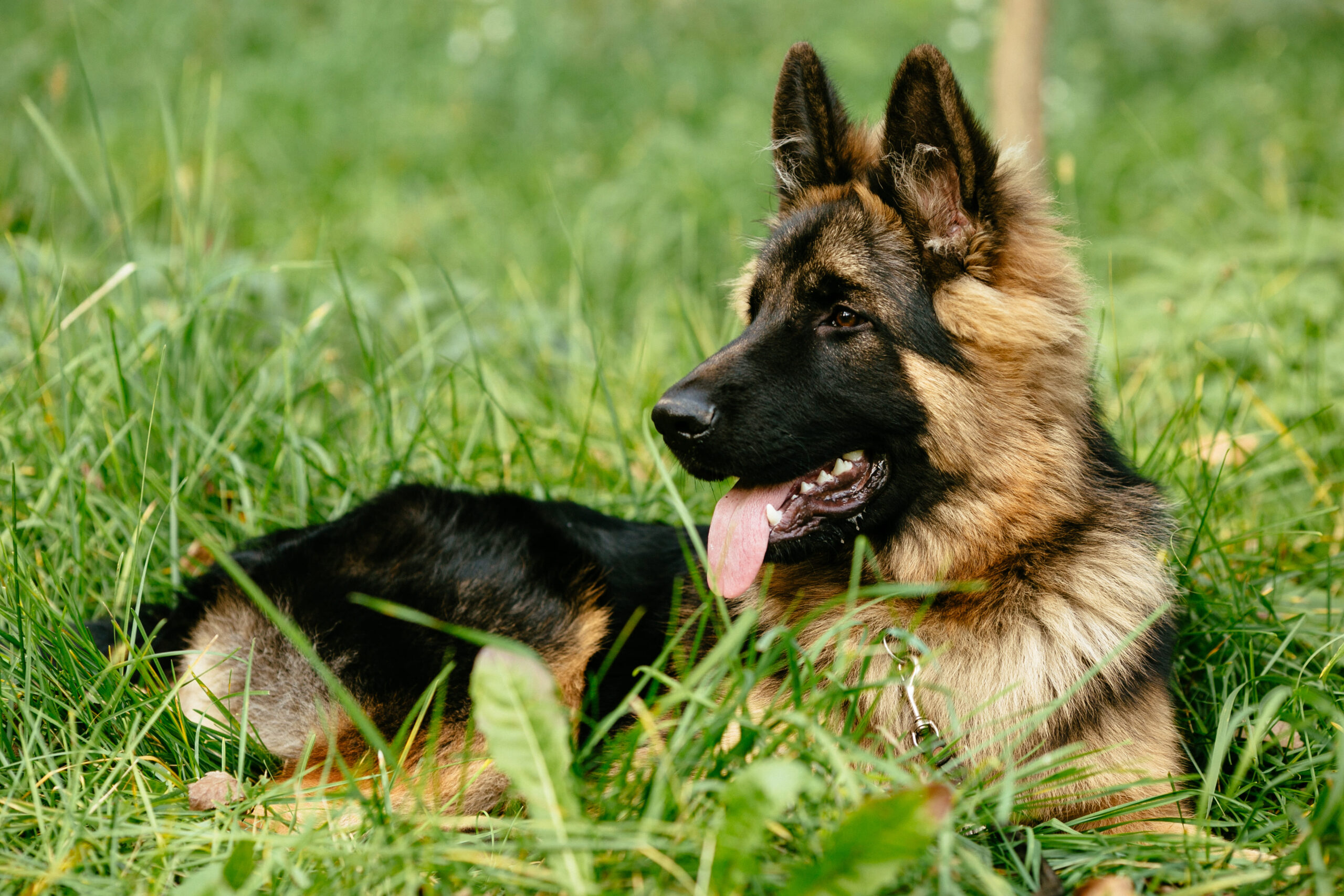Considering buying a German Shepherd? Well, then you must have a lot of questions in your mind: How long do German shepherds live? What do German shepherds usually die from? What is the best diet for German shepherds? etc. Well, this article will answer all your questions.
German Shepherds have become a favorite dog pet for people around the globe, especially in America. They are adorable, diligent, and loyal, which makes them a lovely partner. No wonder, you wish for them to stay by your side for longer than 7 to 10 years, that is their average lifespan. However, their lifespan is affected by numerous factors including their diet, mental health, diseases, etc.
Today, we’ll focus on all those aspects of a German Shepherd’s life that are crucial to his well-being. So without any further ado, let’s start.
How Long Do German Shepherds Live?
7 to 13 years. This is the average lifespan of a German Shepherd, according to wildlife biologists. Furthermore, the external environment, mental health, nutrition, physical activity, hygiene, etc. play a vital role in determining their life expectancy.
It is reported that female German Shepherds have a relatively longer lifespan than males. Let’s proceed to discuss the factors that affect them and see how you can make their life better.
Factors Affecting German Shepherd’s Lifespan
The below-stated factors affect life expectancy of a German Shepherd:
1) Physical Exercise
Exercise is of utmost importance if you want your German shepherd active and healthy. This breed is known to gain weight in no time if no physical exercise is there. Moreover, weight management is necessary to keep the risk of harmful diseases like obesity and hip dysplasia at bay.
Here are a few exercises that you can make your buddy live healthily:
- Ball fetch
- Long run
- Puzzle toys
- Agility courses
- Jumps
Exercise also keeps their mental health intact as they feel loved and cheerful.
2) Dental Hygiene
Of course, you love to offer your loyal friend all the food it likes that is in your capacity, but ensure you watch his gums better. Despite the unwavering behavior from your GSD in this regard, ensure that you also take care of its dental cleanliness. Brushing at least twice a day is suggested to keep the dental floss away.
3) Diet & Nutrition
The diet of German Shepherds must be balanced so that they can get an adequate amount of protein and nutrients. To gain muscles and produce energy, as they are highly playful, GSDs require meat protein and corn. Apart from that, food enriched in Beta Coronate which gets converted into Vitamin A by the body is also needed by them. Usually, they are fed fruits such as apples, mangoes, blueberries, cantaloupe, bananas, etc.
As for the quantity, it depends upon the age, physical activity, and weight of the GSD. Milk is their favorite and essential to strengthen their bones.

Vets suggest a low-carb diet for GSDs because it helps them manage weight and excessive carbs can take a toll on their weight and result in heart problems. In addition, Vitamin C boosts their immunity, Vitamin E improves their skin health, Vitamin K prevents blood clotting and Vitamin B is good for their nervous system. For vegetarian alternatives, plant-based protein or pea protein are a good go-to option. Supplements must be fed after proper consultation of their health and nutrition requirements with a vet.
As per A To Z Animals, here is the list of what to not feed your GSD, otherwise it’ll affect how long do German Shepherds live:
- Almonds
- Alcohol
- Avocados
- Chimes
- Candies
- Garlic
- Chocolate
- Grapes
- Cooked Bones
- Leeks
- Onions
- Raw Potatoes
- Raisins
- Mushrooms
Some of the food brands that are considered good for dogs are: Pedigree, Chappi, Royal Canin, and Purina Supercoat.
4) Neutered/Spay
Neutered implies the removal of the sexual organ of the GSD to avoid any kind of disease developed due to excessive mating. Most vets recommend getting your GSD neutered (used for male GSDs or spayed (used for female GSDs) so that they don’t develop prostatic disease hernias, and cancer. It should be done when your GSD is 1 year old to avoid complications regarding their reproductive health.
5) Hygiene & Vet Appointment
Maintaining proper hygiene means adding a few more healthy years to how long do German Shepherds live. Although these furry cuties can throw tantrums at times, make sure that they get a proper bath at least 4 days a week (or daily). In addition, their ears must be cleaned every week and nails should be clipped once a month. Moreover, their hair should be combed daily, and ensure they aren’t carrying any dog louse.

If any lice are found, give your GSD a shampoo bath for one-and-a-half months continuously. Shampoos containing pyrethroids or organophosphates are quite effective in removing lice. Furthermore, take your GSD to a vet every once in 2 to 3 months for health checkups and vaccinations.
German Shepherd Diseases
(i) Elbow & Hip Dysplasia
An elbow and hip dysplasia is a typical problem that affects the walking and limb structure of the GSD. It can happen due to degenerative joint disease or osteoarthritis that can develop after birth or is hereditary. You must check with a vet if you discover unease in walking and painful reactions while touching your GSD.
(ii) Allergies
Your cutie GSD can fall prey to allergens at times. That being said, cases of allergies are reported a dime a dozen in dogs so you must visit a vet at least once in 2 to 3 months. This will help you keep in check what is affecting your GSD’s health. Signs of allergies include itchy skin/ear, patches, abdominal pain, etc.
(iii) Degenerative Lumbosacral Stenosis

Also referred to as Cauda Equina Syndrome, degenerative lumbosacral stenosis is a pathologic degeneration in the lumbosacral (backbone) disk in dogs. You can tell your GSD has this problem if you find it having discomfort while switching positions from lying and standing or bending, or if it struggles while taking stairs, or playing. This can happen due to a hereditary issue or an accident or jerk. MRI and CT scans can tell better about bone structure issues.
(iv) Perianal Fistula Or Anal Furunculosis
This problem relates to an upset stomach and results in painful defecation, blood in stool, constipation, and many other issues. With perianal fistula, you’ll notice a swollen anal region or tiny holes near the rectum. This can be due to bacterial infection, a topical medication or surgery can make the condition better.
(v) Bloat
It is a situation that occurs when gas gets trapped in your dog’s stomach and can affect how long do German Shepherds live, especially the larger ones. The dog’s stomach feels twisted and they might have difficulty breathing if they experience this digestive disorder. Bloat can even result in the on-the-spot death of a GSD and must be treated as soon as possible.
(vi) Stomach Infections
If your GSD has a stomach infection, you’ll notice it vomiting recklessly, it’s a hint that you must see a vet.
(vii) Pannus
This is an eye problem that can occur in your GSD if it is exposed to UV radiation for prolonged hours. It is typical in dogs with high heights and thus German Shepherds bear this risk. This disease can turn fatal and turn into blindness if not treated well in time.
Conclusion
Life of German Shepherds isn’t that long yet they make a strong connection and are considerably loyal friends by side. They live an average life of 7 to 13 years depending on a plethora of factors. They can be trained to be a good detective and demand a lot of attention. The above article talks about how long do German Shepherds live, what factors affect their life expectancy, and which diseases can generally occur to them
Also Read:





